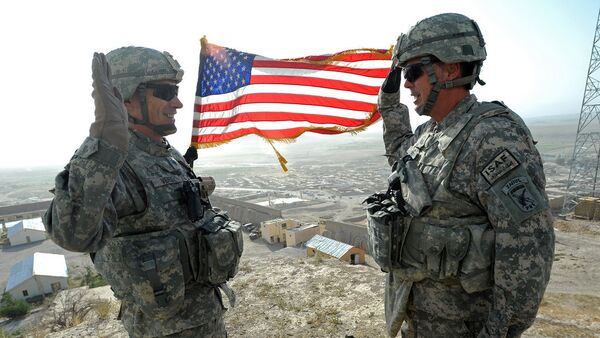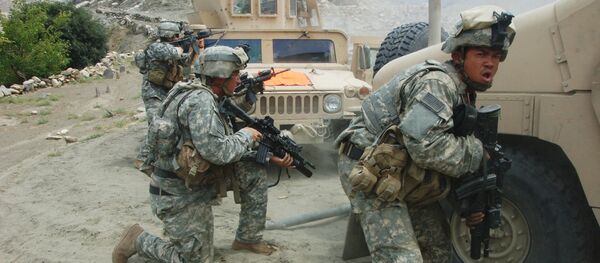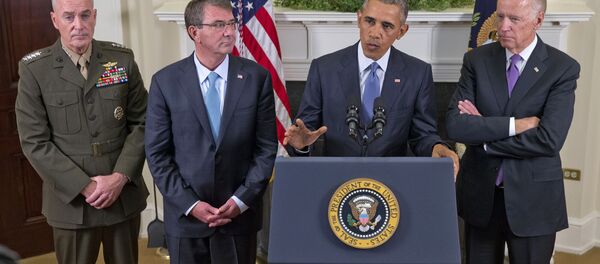"By keeping troops in Afghanistan, the United States is trying to maintain its worldwide credibility as a superpower, to show that it has not ‘abandoned’ Afghanistan and was not defeated," University of Arizona Professor of History David Gibbs told Sputnik.
The United States wants to defend Afghanistan, Gibbs noted, because it is clearly part of America’s "empire of bases," and key to projecting power on every continent.
"In addition, the US troops serve as a symbolic support for the Afghan government, to remind insurgents that the United States can fully reengage at any time," Gibbs suggested.
However, Gibbs warned, the never-ending US presence in Afghanistan generates unsustainable financial costs, which also generates public resentment.
The basic dilemma remains that the war in Afghanistan has entered its fifteenth year with no end in sight, while the American people are clearly exhausted, Gibbs added.
"A few thousand troops, more or less, will not by itself make the difference in determining whether the Taliban can be prevented from making further gains or can be rolled back," Weinbaum explained.
Without mentoring, logistical and intelligence support and the air power the United States and its allies bring to bear as enablers, the Afghan security forces cannot be expected to stand up to the insurgents, Weinbaum noted.
Moreover, without US financial assistance the Afghan army would go unpaid and quickly melt away, he observed.
"At its core, American strategy is to buy time for the Afghan forces to be able to stand more on their own and for the Afghan government to gain the confidence of its own people," Weinbaum argued.
As a result, Weinbaum maintained, Kabul could make the case that the government, rather than the Taliban, "hold the country's future."
On Wednesday, US Senator John McCain said that considering Obama described the security situation in Afghanistan as "precarious," it is difficult to understand the strategic rationale for not maintaining the current level of 9,800 troops in the country.
Last month, the Defense Department changed its rules of engagement in Afghanistan by lifting restrictions on US troops, allowing them to "proactively" target Taliban fighters. The change followed significant Taliban advances over the past year, jeopardizing Afghan Security Forces and US interests in the country.




